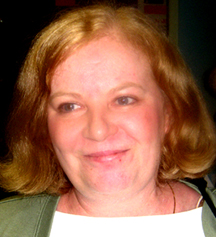Go
Yankees!
Project URL: http://teachersnetwork.org/teachnet-lab/motthallschool/sskea/yankees/index.htm
How it works:
Go Yankees! is a unit of
activities designed to inspire students to become part of an ”All-
Star Team” through an exploration of the New York Yankees. As students
read biographies, discuss, write about, and present the lives of one
of America's greatest baseball teams, they learn that life is about
facing and overcoming hardships, meeting challenges, engaging in team
spirit, and standing tall at home plate.
In activity one, students read biographies of famous Yankees. The
Internet, newspapers, and magazines serve as additional sources of
information. Students learn to read for information and to identify
significant moments and facts. In activity two, students learn how to
select and organize information through the creation of baseball
cards. The Internet and an exploration of Microsoft Word and Publisher
enhances their learning. Activity three enables students to explore
the math behind the players’ statistics and to collect, organize, and
evaluate data. Microsoft Excel, along with the Internet, is an
invaluable tool here. Students write surveys, conduct polls, and
present their findings in charts and graphs. Activity four allows
students to role play, identify personality traits, assess abilities,
and make judgments.
The extension activities listed in each of the
four activities afford teachers and students opportunities to explore
the physics, folklore, math, and dynamics of the game of baseball, a
much-loved pastime.
Standards addressed:
Students
read and comprehend informational material; use information to enhance a project; make informed judgments; use and evaluate a
range of resources; produce a report/display of information; create an
organized structure appropriate to purpose, audience, and content; collect,
organize, interpret, and evaluates statistics; create, read, and
interpret charts and graphs; connect mathematics to real-life
situations; participate in group discussions and one-to-one
conferences; develop listening skills; prepare and deliver an
individual presentation; demonstrate an understanding of the rules of
the English language in written and oral work; analyze and
subsequently revise work to improve its clarity and effectiveness; publish
a final document; work cooperatively with others on a “team"; employ
appropriate forms of technology effectively; and manage
time appropriately to meet deadlines.
Materials
used:
Materials include at least one computer with Internet access and
Microsoft Word, Publisher (optional), and Excel, printers, scanners
(optional), a digital camera (optional), a laminator (optional), heavy
stock paper, newspapers or sport magazines, and
biographies
of New York Yankees past and present.
The students:
This program was developed for students in grades five through eight.
A basic knowledge of the computer and the Internet is helpful.
Overall value:
This project truly reflects the many
interests of students, as it was inspired and developed with their
assistance. And it continues to evolve and grow in scope, in meaning,
and in application as new students become involved. In addition to
developing writing, math, and technology skills, students learn
about sports history and perhaps their own family history as they interview their parents and grandparents about favorite New
York Yankee players. This project can also lead to discussions about self determination, facing
challenges, sportsmanship, and fair play that all serve to develop
student social skills.
Tips:
The project works best when each student is assigned an individual
player. Check and approve the books your students select before
reading begins and inform parents about the project. Listen carefully when students are discussing their
reading. I got the idea to have a “World Series” event and
to include a quote on the baseball cards from my students. Many
New York Yankees have their own websites. Check these sites first and
provide web addresses for your students. Actively monitor your students as
they use the Internet, and have students post
interesting web sites they discover on the chalkboard for all to
share. This also serves to develop team spirit. Be sure to ask for
permission to conduct surveys outside the classroom. All the
activities offered in Go Yankees! can be done using another team
or sport.
|

About the teacher:
Sandra A. Skea is a fifth and sixth grade teacher at the Mott Hall
School. Her published projects include “Let’s Go Fly a Kite,”
featured on the George Lucas Educational Foundation website and in its
magazine, and “Building a Portable Storage System," a chapter
in the City College of New York curriculum and technology guide
“Packaging and Other Structures." Sandra has participated in
the District Six Summer Institute and, with a team of teachers, helped
develop, write, and publish a multi-disciplinary curriculum based on
an exploration of three neighborhoods. She has completed a course of
study with the Salvadori Institute at CCNY and was a contributing member of Amazon Quest. Sandra
is also a member of the National Council of Teachers of Mathematics
and of the Project Arts Committee at Mott Hall.
E-mail:
sskea@aol.com
Subject Areas:
Language Arts
Mathematics
Technology
Grade Levels:
5-8
|